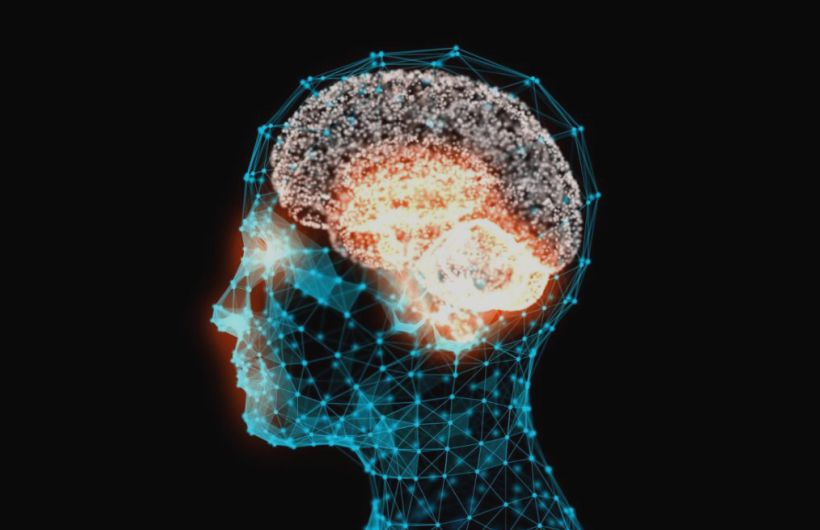The study of Psychology enables one to understand how people behave, think and feel in different situations and contexts. Such knowledge and insights about how the human mind works is valuable in almost every kind of organization and industry sector.
STUDY MODEL
3 years online
ACCREDITATION
VALUE ADD
ACADEMIC WRITING
Students will be exposed to academic writing rules and techniques, including effective and extensive reading strategies, effective participation in seminars and delivery of presentations, and effectively listening to and recording information from lectures.
ENGLISH LANGUAGE SKILLS
Learning how to master a language is no easy task. During this course, students will have the opportunity to understand the rules of the English language and apply them to a variety of contexts and situations, including academically.
DIGITAL SKILLS
Through this course, students will be exposed to critical digital skills needed for their academic courses, ranging from online safety to how to communicate through digital means.
ANALYTICAL AND PROFESSIONAL SKILLS
This module aims to develop conceptual and practical skills to enhance students’ ability to study, research, and gain employment in the field of Psychology.
HISTORICAL PERSPECTIVES IN PSYCHOLOGY
This module is an introduction to the world of psychology in order to understand the scientific underpinnings of psychology as a discipline, its historical origins, development, and limitations. The module will orientate the students towards some of the key concepts and debates, and it will briefly touch on all the other modules in order to provide a comprehensive introduction to the programme.
INTRODUCTION TO PSYCHOBIOLOGY
This module is a fundamental core module of the course. It is designed to be an introduction to principles in Psychobiology and it aims to develop knowledge and understanding of the role of the brain and nervous system in psychological processes including language, memory, emotion, stress, psychopathology, and sensory processes.
INTRODUCTION TO RESEARCH METHODS
This course introduces basic statistical tests and common research designs employed in psychological experimentation. There is particular emphasis on the execution and reporting of experiments, understanding, and interpreting the output of descriptive and inferential statistical tests, and how to use statistical computer software packages such as SPSS or R.
BIOLOGICAL PSYCHOLOGY
This module is a fundamental core module of the course and is designed to be an introduction to the principles of Biological Psychology. The module aims to develop knowledge and understanding of the role of the brain and nervous system in psychological processes including language, memory, emotion, stress, psychopathology and sensory processes.
CLINICAL PSYCHOPATHOLOGY
This course introduces students to concepts of Clinical Psychopathology and is aimed to provide students with some familiarity with medical diagnoses.
DEVELOPMENTAL PSYCHOLOGY
This module aims to introduce students to key concepts and approaches in Developmental Psychology and is a fundamental core module of the course.
DESIGN AND ANALYSIS OF PSYCHOLOGICAL INVESTIGATIONS
This module provides an introduction to experimental research and analysis in Psychology. It consists of two components: a lecture component that covers experimental design and statistics; a laboratory component then focuses on designing and running experiments, applying statistical analyses to generated data, and reporting experimental findings.
PHILOSOPHICAL FOUNDATIONS OF PSYCHOLOGY
This course introduces the students to basic concepts in philosophy and how they relate to psychology as a discipline. This module is offered in order to provide a broader, more comprehensive view of the social sciences and psychology in particular.
PSYCHOLOGY OF THE PERSON
This module is a fundamental core module of the course. It introduces the Psychology of the Person from four different perspectives: developmental, intelligence, social psychology, and personality. By the end of the module, students will have acquired knowledge of key concepts, measures, methods and theories relevant to studying human development, intelligence, self-concept, social influence, group processes, and personality.
INFORMATION PROCESSING AND COGNITION
This module provides an introduction to topics and issues that are critical to the study of human Information Processing. and Cognition. Examples of methodologies and techniques employed in the field will be used to present research within various topic areas.
INTERMEDIATE RESEARCH METHODS
This course extends the knowledge developed in the Design and Analysis module, and it continues to focus on the key skills needed to conduct quantitative-based psychological research, such as the execution and reporting of experiments, the understanding and interpretation of statistical tests, and the use of statistical packages such as SPSS or R.
QUALITATIVE RESEARCH METHODS
This course is designed to help students understand why and how qualitative research is carried out in Psychology. A sample of current qualitative methodologies and examples of how qualitative methods may be applied in psychological settings are provided. Students are introduced to the processes involved in making sense of qualitative data and how qualitative data can and should be analysed and evaluated.
COGNITIVE PSYCHOLOGY
This module which focuses on the key concepts and theories in Cognitive Psychology is a fundamental core module of the course. The module supports students to acquire knowledge of key areas of Cognitive Psychology including attention, perception, memory, language and thinking.
PERSONALITY AND INDIVIDUAL DIFFERENCES
This is a fundamental core module of the course. It introduces key concepts in the field of Personality and Individual Differences, which build from previous modules such as Psychology of the Person and will also be relevant for other modules, such as Social Psychology and Psychodynamic Psychology.
SOCIAL PSYCHOLOGY
This is a fundamental core module of the course which focuses on the key concepts and theories in Social Psychology, including social cognition and person perception, attitudes and attitude change, social identity, prejudice, and human aggression.
ONE ELECTIVE MODULE FROM:
HEALTH PSYCHOLOGY
This module introduces students to the applied discipline of Health Psychology. Key concepts and approaches in this module build from previous modules such as Psychology of the Person and Psychobiology, and will also feature in other modules, for example, Personality and Individual Differences.
GROUP DYNAMICS
This module introduces students to the applied discipline of Group Dynamics providing key concepts and knowledge of the different theories at the basis of Group Dynamics. Different group interventions will be discussed and analysed to illustrate how group dynamic works in practice.
PSYCHOLOGY OF SEXUALITY AND GENDER
This module offers students an overview of theories around sexuality and gender. It builds upon knowledge gained in 2nd-year modules (such as Individual differences and Psychopathology) and is offers students the opportunity to develop knowledge of a specific topic.
FORENSIC PSYCHOLOGY
This module focuses on the key concepts and theories in Forensic Psychology and is a fundamental core module of the course. In this module, psychological science is applied to the investigation of crime and the process of criminal law. Concepts introduced in this module build from previous modules such as Cognitive Psychology.
BEHAVIOURAL GENETICS
This module focuses on the key concepts and theories in Behavioural Genetics and is a fundamental core module of the course. Concepts introduced in this module build from previous modules such as Cognitive Psychology and Biological Psychology.
PSYCHODYNAMIC PSYCHOLOGY
This module aims to gain specialised knowledge about different perspectives of Psychodynamic Psychology by exploring historical and modern theories within the psychoanalytic approach.
Dissertation
In this module, students complete an empirical study which is then communicated in the form of a written report which includes: an introduction, methodology, description of data collection and analysis, and discussion.
TWO ELECTIVE MODULES FROM:
OCCUPATIONAL PSYCHOLOGY
This module introduces the applied discipline of Occupational Psychology. Key concepts and approaches in this module build from previous modules such as Psychology of the Person and Health Psychology.
ADVANCED BIOLOGICAL PSYCHOLOGY
This module aims to detail the complex relationship between the brain and behaviour. By the end of the module, students will have acquired knowledge of how brain functioning contributes to our understanding of specific systems (e.g., vision, learning) or sets of problems (e.g., substance abuse, behaviour disorders).
INDIVIDUAL DIFFERENCES IN ATTENTION, MEMORY AND AWARENESS
This module offers students an overview of research and theory in the field of attention, memory, and awareness, from an individual differences perspective.




